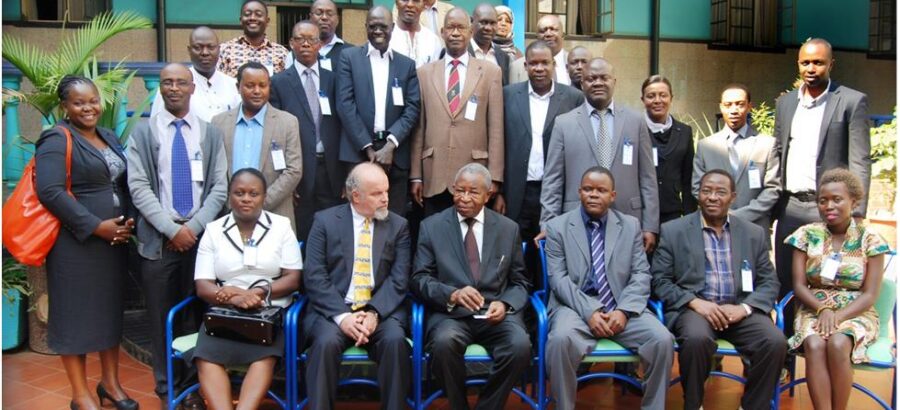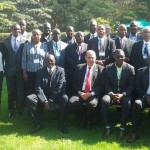1.Objective of the Workshop
The objectives of the meeting are as follows:
- Consolidate outcomes of the previous meeting and officially launch the Eastern Africa Sub-regional CSA Platform;
- Develop the CSA Platform Work Plan for the coming year;
- Strengthen linkages at the sub-regional level between national CSA task forces and identify opportunities for national task forces to work together at the sub-regional level; and
- Exchange information, experiences and best practices on CSA in the Eastern African Sub-region.
Expected outcomes
The expected outcomes of the meeting are:
- The Eastern Africa CSA Platform is officially launched with thematic groups identified and organizations nominated to undertake key roles;
- The Eastern Africa Sub-regional CSA Platform work plan is developed for the coming year;
- New information and experiences on CSA in the sub-region are shared.
2.The presentations and discussions included ;
The workshop was officially opened by the Uganda Minister for Agriculture, Animal Industry and Fisheries Hon. Tress Bucyanayandi said that there is need for drastic and innovative measures to help Uganda and indeed the whole of Eastern Africa to adapt to climate change.
The meeting brought together participants from Ministries of Agriculture in 6 Eastern African Countries in addition to key Regional Economic Communities (EAC and IGAD) in the sub-region to deliberated on issues around the adoption and sustained practice of climate-smart agriculture including monitoring and evaluation of climate-smart agriculture, value chain development for climate-smart agriculture, access to equipment for climate-smart agriculture , mainstreaming CSA into national agriculture investment plans and the gender dimensions in promotion of CSA practices among others.
The first day was dedicated to discussion and presentations made by the regional bodies, FAO and the consultant’s report. I made a presentation that covered the following aspects;
- Agriculture, livelihoods, climate change and land degradation context for IGAD member states
- Key climate-smart agriculture programmes IGAD is undertaking
- Key activities IGAD and member states are conducting regarding climate-smart agriculture
- Challenges and successes regarding climate change adaptation and mitigation among IGAD member states
- Opportunities for partnership and upscale of IGAD climate-smart agriculture activities – including future plans
The second day was dedicated to reporting on countries progress on CSA and the thematic group activities. The thematic groups were as follows;
- CSA knowledge management and capacity building
- Policy and advocacy
- Research and Monitoring and evaluation
- Value chains
The groups met and deliberated on issues and gave their recommendations around the following questions;
- What are the main issues regarding CSA upscale in the sub-region under your thematic area?
- What should be the main focus areas of each thematic area in order to support CSA upscale in the sub-region and the overall mission of the Sub-regional CSA Platform?
- For each of the focus areas, please identify the expected outputs to be achieved (within 3 years) in CSA upscale in the sub-region
- What is the resource mobilization strategy proposed?
Next steps/Action points
- FAOSFE will produce the final workshop report and share with the participants.
- FAO Somalia have expressed their interest in working with ICPALD on climate smart issues in Somalia. Their representative in the meeting Laura Cortada promised to make a follow up after the meeting





